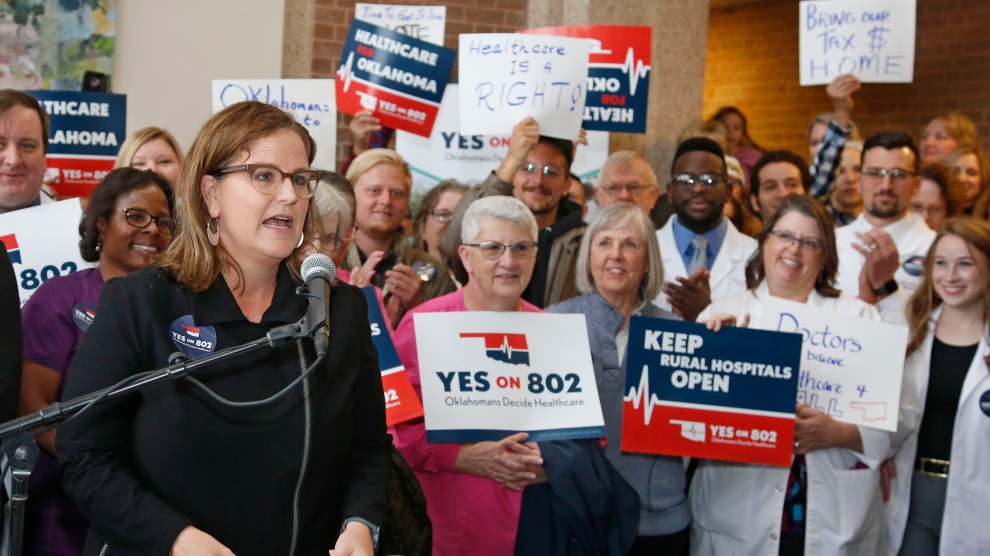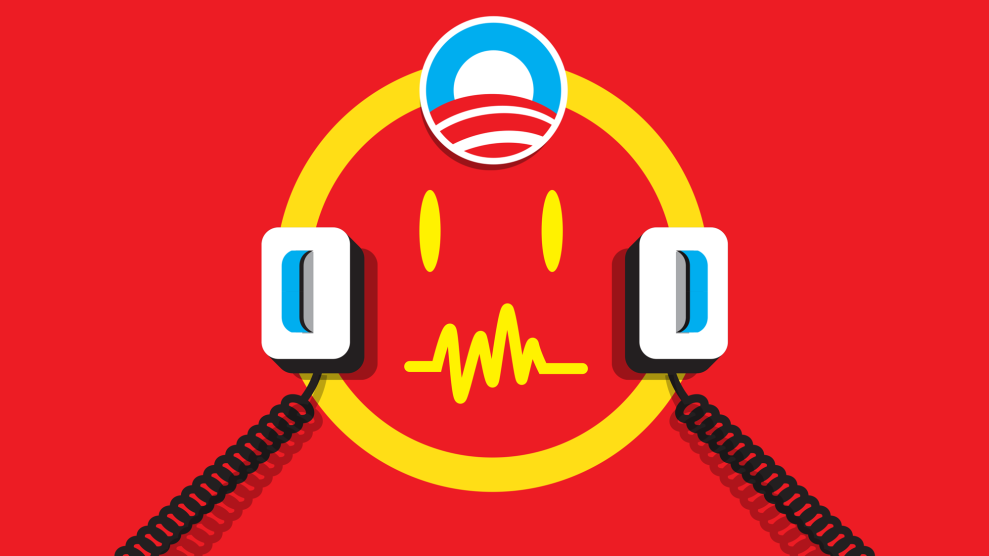
Sue Ogrocki/AP
The deep red state of Oklahoma voted Tuesday to expand Medicaid, which could end up offering 200,000 low-income residents access to health care.
The measure, which passed with 50.5 percent, a margin of just 6, 488 votes, will expand Medicaid access to adults whose income is at or below 138 percent of the federal poverty level. Medicaid expansion was a provision of the Affordable Care Act, but a 2012 Supreme Court ruling let individual states decide whether to adopt it. Even though the federal government foots 90 percent of the bill for the health care program, 14 states had not expanded Medicaid as of late June. Oklahoma’s decision brought that number down to 13.
While Republican lawmakers have remained opposed to Medicaid expansion thanks to its association with President Obama, voters in many red states have turned to ballot initiatives to enact the provision, proving the popularity of increased health care access regardless of voters’ political affiliation.
Tuesday’s vote comes as coronavirus case counts are on the rise in Oklahoma, and high unemployment could increase the number of people eligible for Medicaid. Meanwhile, the state’s Republican Gov. Kevin Stitt remains a staunch opponent to Medicaid expansion, arguing that the state can’t afford it given its budget deficit. The state is required to expand Medicaid by July 1, 2021, during which time Stitt’s administration will have to decide whether to withdraw from its block grant plan, a strategy espoused by the Trump administration which would loosen state coverage requirements in exchange for a lump sum, rather than an entitlement, from the federal government. Oklahoma is the first state to take part in the controversial plan and will likely face legal challenges from Medicaid advocates if it does not withdraw.
















